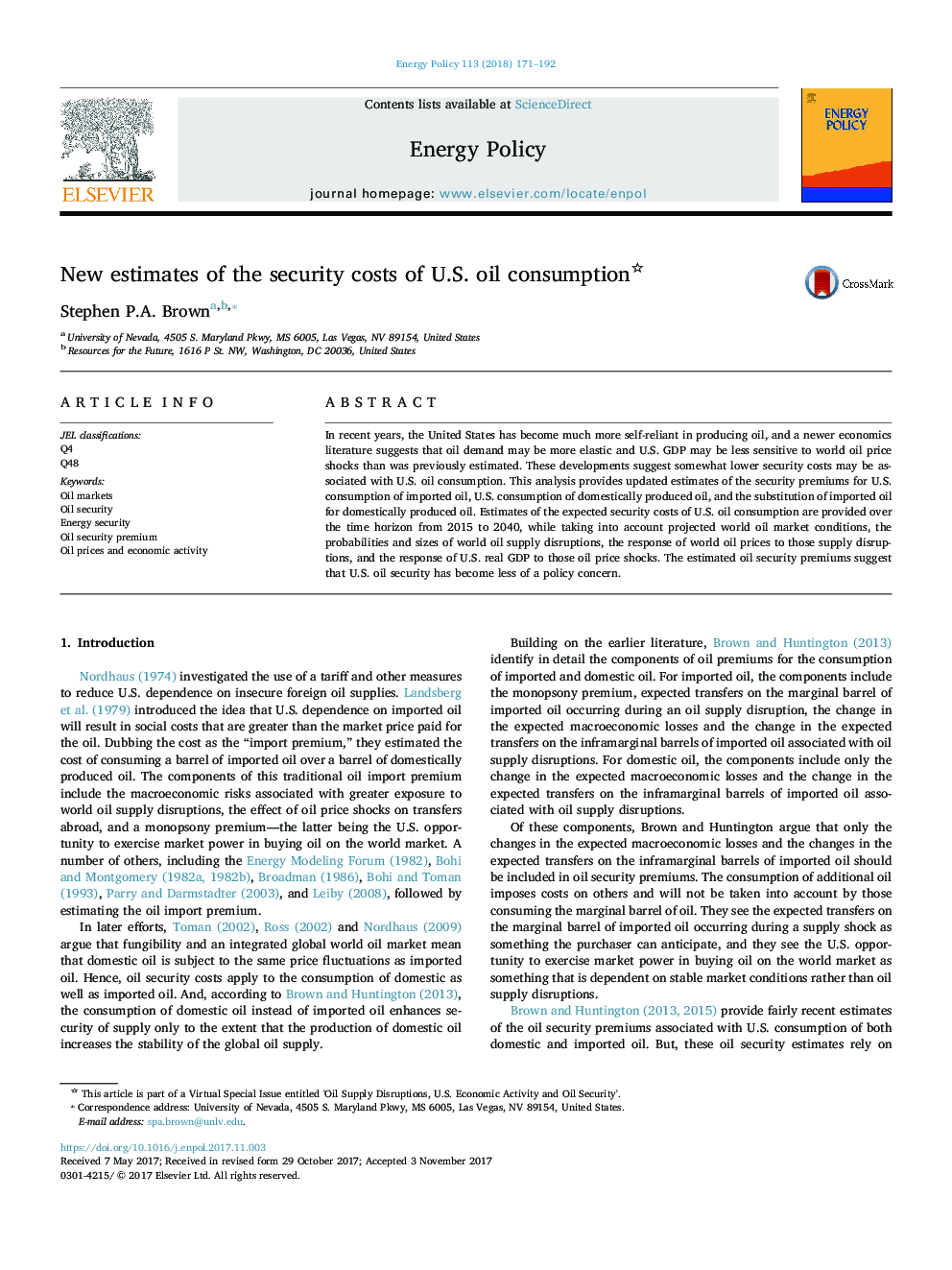| Article ID | Journal | Published Year | Pages | File Type |
|---|---|---|---|---|
| 7397887 | Energy Policy | 2018 | 22 Pages |
Abstract
In recent years, the United States has become much more self-reliant in producing oil, and a newer economics literature suggests that oil demand may be more elastic and U.S. GDP may be less sensitive to world oil price shocks than was previously estimated. These developments suggest somewhat lower security costs may be associated with U.S. oil consumption. This analysis provides updated estimates of the security premiums for U.S. consumption of imported oil, U.S. consumption of domestically produced oil, and the substitution of imported oil for domestically produced oil. Estimates of the expected security costs of U.S. oil consumption are provided over the time horizon from 2015 to 2040, while taking into account projected world oil market conditions, the probabilities and sizes of world oil supply disruptions, the response of world oil prices to those supply disruptions, and the response of U.S. real GDP to those oil price shocks. The estimated oil security premiums suggest that U.S. oil security has become less of a policy concern.
Related Topics
Physical Sciences and Engineering
Energy
Energy Engineering and Power Technology
Authors
Stephen P.A. Brown,
